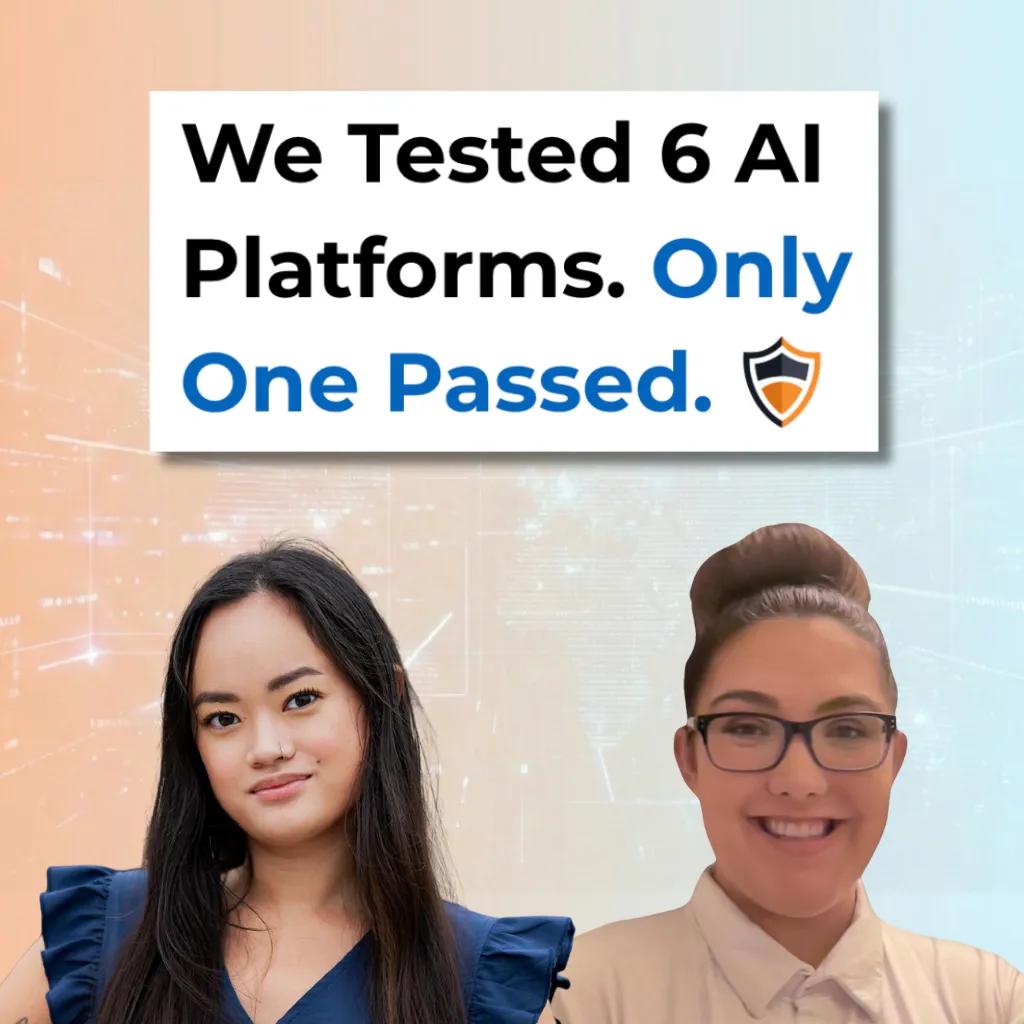Starting with AI: From Spreadsheets to Life-Changing Technology
I'm a clinical psychologist who transitioned from acute mental health work in hospitals to conducting developmental assessments. Today, I work privately, helping parents understand what's happening with their children whether it's learning difficulties like dyslexia, developmental issues like autism or ADHD, or intellectual disabilities. Essentially, I'm a diagnostician who figures out the answers to "what's going on with this young person?" and connects families to the resources they need.
My AI journey began with one of those memorable moments that stick with you forever. At a meeting with colleagues who share office space, someone mentioned that their supervisor had recorded a supervision session, and AI created a summary automatically, no note-taking required. We all just went "What? How?" I remember that exact moment because it seemed impossible.
Being naturally curious about new technology, I went straight home and signed up for a free trial of that first AI tool. While it wasn't the most user-friendly program, it planted a seed. Over the summer break, I made a decision that 2025 was going to be the year I streamlined my reports because they simply couldn't take as long as they were taking.
The real catalyst came when I was trying to automate my Excel tables for scoring assessments. I had a ChatGPT account but didn't really know what to ask it. When I started building spreadsheets to automate score calculations, I quickly hit ChatGPT's daily question limit. That's when I tried my BastionGPT code and spent two intensive weeks creating automated tables for all my assessment tools, tables that now color-code ranges and calculate percentiles automatically.
What struck me most was developing this strange relationship with the AI during those weeks. I was actually thanking BastionGPT because it felt like having another person working alongside me, patiently answering question after question about Excel formulas. I thought I'd just use the 30-day trial for those spreadsheets and cancel, but by the end of that period, I realized I couldn't live without this technology.
Using AI & BastionGPT: The Most Transformative Impact
The most transformative use case has been recording and processing parent interviews. When assessing children for developmental issues, I conduct detailed interviews with parents that can last one to two hours, gathering comprehensive developmental history with incredibly specific questions about play, social interactions, and behavioral patterns.
Writing up these parent interviews used to be the absolute worst part of my job. I didn't mind the conversations, but creating a narrative from two hours of detailed discussion was torture. Parents don't speak according to the headings in my reports, they'll mention three different topics in one sentence, and I'd need to extract pieces for different sections. I used to highlight each portion I'd transferred to show I'd dealt with it, and it took hours upon hours.
Now, I give BastionGPT my headings and an example of my narrative style. At the end of the session, I press a button, and what used to take me hours is done. It's really weird because what used to be the longest part of my report has become one of the quickest. The transformation went from several hours to maybe 15 minutes of reading and tweaking.
BastionGPT stands out because of its clean, straightforward interface. You can just go on and start using it immediately. It's like ChatGPT but purpose-built for healthcare. I've tried many other platforms, and I keep going back to BastionGPT. Some competitors had interfaces that felt like a mess with too much going on, while others were too American-focused with terminology and frameworks that didn't apply to our work in New Zealand. With BastionGPT, I could simply ask for British spellings, and it adapted perfectly.
One memorable example involved a student with a complex learning profile affecting mathematics. I used BastionGPT to create a separate handout for the math teacher, explaining why the student's specific cognitive weaknesses would impact mathematical learning more than other subjects. I gave the AI my full report and asked it to create a targeted explanation for a teacher who thought the student was just being lazy. I never would have created a separate, personalized handout before because I was simply too busy. But BastionGPT made it effortless to provide customized support.
The Impact of AI: Professional and Personal Transformation
The personal changes have been remarkable. I joked to my husband recently while baking bread that I used to bake all the time, asking "When did I last produce a loaf of bread?" I told him, "This is AI you can thank for me doing this. I literally have got time on my hands again."
BastionGPT has genuinely given me hours of my day back. Before adopting this technology, I was at the point of wondering how long I could keep doing assessment work. A colleague and I were discussing whether we could keep writing these extensive reports, they were becoming overwhelming. Now we joke that we can keep doing this work for the rest of our lives, and we can truly keep doing it now.
The technology has also transformed my interactions with parents during assessments. Instead of constantly typing detailed notes while looking at a Word document, I can now look directly at them and have genuine conversations. I can maintain eye contact and be fully present instead of switching between typing and glancing at the clients. It's restored the human component to my practice.
Challenges & Ethics: Navigating New Territory
The biggest learning curve was mastering prompt engineering. I didn't initially understand how to communicate with AI effectively. My advice to others struggling with this is to talk to it like you have an intern standing next to you, explaining the full context. For that math teacher handout, I explained that she didn't believe the student had legitimate difficulties and thought he could just try harder.
The key breakthrough came from giving examples in prompts. Most of my effective prompts now include an example of my style, saying "write it like this one below." The AI reads your style and adapts accordingly.
Ethically, I've created consent forms that address AI use, and it's remarkable that BastionGPT could reference relevant New Zealand legislation when I asked. No parent has refused consent when I explain that I use AI for transcription and organization, they generally respond that this is what professionals are doing now.
The murky ethical area involves determining how much AI assistance is appropriate in report writing. I'm very choosy about which sections I allow AI to help with, maintaining human oversight for clinical interpretations. While AI can accurately organize conversations and even suggest diagnoses with surprising accuracy, I believe the clinical judgment and interpretation should remain distinctly human.
The Future of AI: Imagining Possibilities
Honestly, I couldn't have imagined current AI capabilities a year ago, so predicting the future feels impossible. From a practical standpoint, I'd love AI to automatically extract scores from assessment protocols and populate my tables, eliminating manual data entry errors.
I envision AI continuing to handle the administrative burden while preserving the essentially human aspects of psychological practice. The technology should augment our clinical expertise, not replace our professional judgment.
Advice & Final Thoughts: Don't Delay, Just Try It
My advice to peers is simple: don't delay this. It feels like a big, overwhelming technology, but it's not. Sign up for a trial and just ask it one question about a current client, maybe request a handout for parents on a specific topic. That's all it is, nothing more complicated.
I tell people I've become like an "AI evangelist". I can't stop talking about it and trying to recruit others because the impact has been so transformative. My colleague jokes that we've become like missionaries for this technology.
Try a few different platforms to find what works for you, but don't be intimidated. The key is treating AI like a knowledgeable assistant: provide context, include examples, and be specific about what you want.
The one message I want readers to understand is that this technology has genuinely transformed my practice and given me back my professional satisfaction. I was approaching burnout from administrative burden, and now I can focus on what I love about this work, helping families understand their children and connecting them to appropriate support. If you're hesitating about AI adoption, remember that every day you delay is a day you could have been baking bread instead of drowning in paperwork.



.png)
.png)